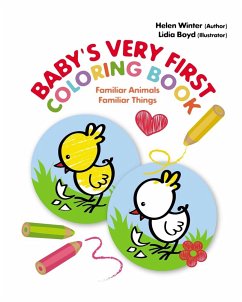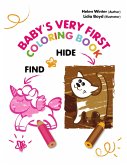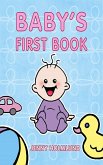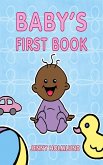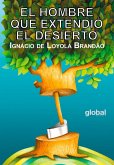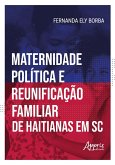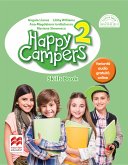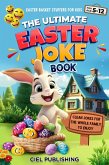I have always wanted to create a coloring book for toddlers that doesn’t overwhelm and frustrate children. I tested, observed, and did research.
Our main conclusions are below, and the primary result of this research is a series of coloring books that encourage toddlers.
According to our research, most modern coloring books do not inspire kids to color.
What kind of coloring books typically sell well and are loved by parents?
1. Thick and overwhelming books (100 + pictures).
2. Coloring books with complicated and difficult pictures, created with the belief that it "helps kids develop".
3. Cheap Coloring Books - one that can be bought in a supermarket for a dollar.
Modern coloring books are crammed full of information and similar books require copying - one page might contain 20 pictures.
The child must learn letters, numbers, and colors at the same time. Most of these pictures do not allow a child to respond emotionally because it is such a large volume of material.
This is not coloring. Copying books can be very useful for school, but for small kids, the delight they get from coloring is much more important.
What kind of coloring book might be encouraging and inspiring for small children?
It should be a coloring book that:
1. ... can easily be completed, having just 10-15 pictures, and a maximum of 20-25 pages. Large “comprehensive” coloring books (100+ pictures and 30+ pages) produce a sense of overload: the first thought of your kid will be: “I will never complete this”. The child hastily doodles on each page in an attempt to complete the massive book.
2. ... has images that are understandable and familiar (objects known from movies, books, and everyday life) and has colored pictures or pages (does not look like a black and white textbook or a newspaper for adults).
3. ... contains rather big, simple, and less detailed pictures with softer shapes. No sharp angles, no bottlenecks.
4. ... has a simple, not distracting, and colored background. Coloring the whole page can be a very complicated task for small hands. Having a limited space for coloring will encourage children and help them focus on the picture. The will inspire them to continue. I have heard the argument that this type of coloring book might teach a child to color in their textbooks. However, I have never seen this problem. Part of growing up is learning to discern where and where they cannot play. In fact, all good preschool learning books have space for coloring.
5. ... has clearly defined bold outlines. My children always preferred pictures with very bold outlines (up to 2-3 mm). For kids of such a young age, it is a problem to color within the lines because of still-developing fine motor skills.
The bold outlines will help kids stay within the lines, and even if they don’t, it will not be very visible. I understand that kids prefer brush-made outlines, which make the picture more friendly and alive.
Each spread of the book has two pictures: A pre-colored image and an outlined image. Each figure is large and welcoming. All details that are necessary for the image, but difficult for toddlers, are pre-colored beforehand (ears, eyes, tails, hoofs, etc.).
Each picture has a completed pre-colored example, but it is not necessary for children to copy it. A child can choose their own colors independently.
Our main conclusions are below, and the primary result of this research is a series of coloring books that encourage toddlers.
According to our research, most modern coloring books do not inspire kids to color.
What kind of coloring books typically sell well and are loved by parents?
1. Thick and overwhelming books (100 + pictures).
2. Coloring books with complicated and difficult pictures, created with the belief that it "helps kids develop".
3. Cheap Coloring Books - one that can be bought in a supermarket for a dollar.
Modern coloring books are crammed full of information and similar books require copying - one page might contain 20 pictures.
The child must learn letters, numbers, and colors at the same time. Most of these pictures do not allow a child to respond emotionally because it is such a large volume of material.
This is not coloring. Copying books can be very useful for school, but for small kids, the delight they get from coloring is much more important.
What kind of coloring book might be encouraging and inspiring for small children?
It should be a coloring book that:
1. ... can easily be completed, having just 10-15 pictures, and a maximum of 20-25 pages. Large “comprehensive” coloring books (100+ pictures and 30+ pages) produce a sense of overload: the first thought of your kid will be: “I will never complete this”. The child hastily doodles on each page in an attempt to complete the massive book.
2. ... has images that are understandable and familiar (objects known from movies, books, and everyday life) and has colored pictures or pages (does not look like a black and white textbook or a newspaper for adults).
3. ... contains rather big, simple, and less detailed pictures with softer shapes. No sharp angles, no bottlenecks.
4. ... has a simple, not distracting, and colored background. Coloring the whole page can be a very complicated task for small hands. Having a limited space for coloring will encourage children and help them focus on the picture. The will inspire them to continue. I have heard the argument that this type of coloring book might teach a child to color in their textbooks. However, I have never seen this problem. Part of growing up is learning to discern where and where they cannot play. In fact, all good preschool learning books have space for coloring.
5. ... has clearly defined bold outlines. My children always preferred pictures with very bold outlines (up to 2-3 mm). For kids of such a young age, it is a problem to color within the lines because of still-developing fine motor skills.
The bold outlines will help kids stay within the lines, and even if they don’t, it will not be very visible. I understand that kids prefer brush-made outlines, which make the picture more friendly and alive.
Each spread of the book has two pictures: A pre-colored image and an outlined image. Each figure is large and welcoming. All details that are necessary for the image, but difficult for toddlers, are pre-colored beforehand (ears, eyes, tails, hoofs, etc.).
Each picture has a completed pre-colored example, but it is not necessary for children to copy it. A child can choose their own colors independently.

